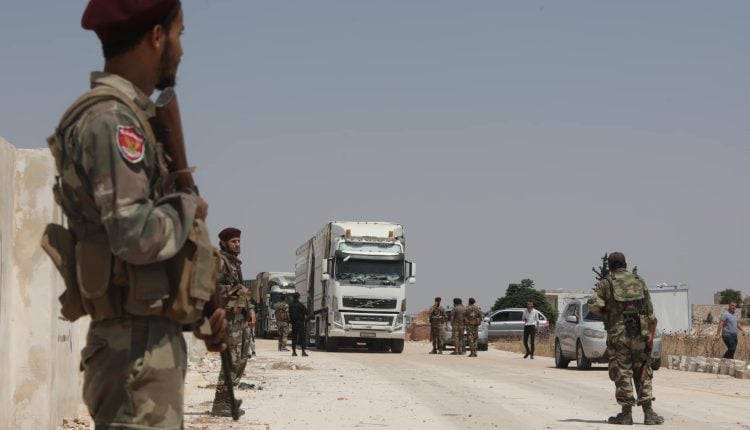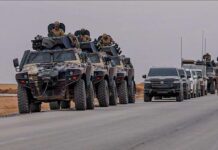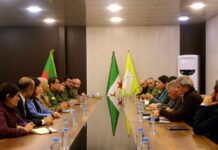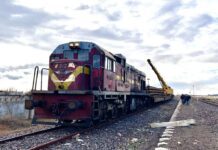
Tensions have flared in northern Syria after repeated artillery shelling targeted the Abu Al-Zandin crossing, a key border point between areas controlled by the Turkish-backed Syrian Interim Government (SIG) and those under the control of the Assad regime. The crossing, located in the eastern countryside of Aleppo, has been at the center of controversy since its recent opening this week on August 19.
The crossing, which had been closed for four years, was reopened under the auspices of the SIG and the military police of the Syrian National Army (SNA). Its opening was intended to facilitate the movement of commercial trucks between SIG-controlled areas and Assad-held territories. However, within a day of its reopening, artillery shelling targeted the area twice.
Activists circulated images and videos on social media showing the aftermath of the shelling, believed to be by the PKK-aligned Syrian Democratic Forces (SDF). While there were no immediate reports of casualties, the attacks have raised fears of further violence and instability in the region. Local sources reported that three members of the SNA’s military police were injured in the second round of shelling yesterday August 20.
The decision to reopen the crossing has sparked significant opposition among local residents and clerics in the region. Many fear that it signals a step towards normalization with the Assad regime, a move that they believe could entrench the regime’s control and exacerbate local economic difficulties. A sit-in protest was organized by residents of al-Bab, a nearby city, to express their disapproval of the reopening. In northern Aleppo, armed local fighters from Marea and al-Bab blocked commercial trucks from passing through the crossing.
The crossing, first established in 2017 after the joint Turkish-FSA military operation known as the Euphrates Shield, has long been a focal point of contention. Initially serving as a “humanitarian corridor,” it was officially closed in March 2020 due to the COVID-19 pandemic. Since then, it has seen sporadic use for smuggling and brief attempts at reopening, which have been met with strong local resistance.
The recent shelling has only heightened concerns that the crossing could become a flashpoint for further conflict. The source of the attacks remains unclear, with speculation pointing to various groups in addition to the SDF, including the Assad regime’s forces, Iranian-backed militias, and even factions within the SNA, each with their own interests in the region.
The reopening of the Abu Al-Zandin crossing is seen by some as a necessary step to revive the local economy and improve living conditions in northern Syria, where many live in poverty and unemployment rates are high. However, the absence of clear oversight and the potential for the crossing to be exploited for illicit purposes have fueled skepticism and opposition among the local population.








